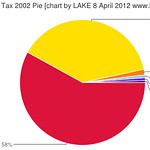Received today on History should reward all research. -jsq
I like to read LAKE because it allows people with opposing views to voice an opinion. For example, I no longer feel the need to read my hometown paper, the little advertiser, the DC Caller and various other right wing promoters. Another example, George and I disagree on many issues and Ms. Stratton and I disagree on many issues.. Citizens with the same rights as everyone being bullied.. intimidated.. feels familiar. Koch brothers, ALEC, local DA, local BOE, etc… Take your pick. Ms. Stratton, I respect your VOICE. But, I have been too busy getting myself and others CERTIFIED to REGISTER voters and per Ken Collins ANYONE can vote ABSENTEE for ANY reason AND, I can pick up as many ABSENTEE APPLICATIONS as I wish and TAKE them to my family which includes practically EVERYBODY
in BROOKS.. Not to DISRESPECT your VOICE, but your previous comment about "anyone NOT capable of getting ID.." basically STUPID. In 2012, there are souls in my community who STILL need all the Fannies and Georges to "Break it down in common VOICE". I can just see Deal, Olens, Carter, Golden and ALL the others huddling NOW to change this little VOTER PERK! I wish someone would please tell this to the guys on 105.9. And George, I have NEVER listened to them.. Do not feel the NEED. I got too many people asking me to come explain some WORDS to them..And, I thank my late father, Mr. Charlie Milton (Bud) Jackson, Sr.. Brooks counties' GREATEST TROJAN for this.. Daddy never learned to read and write, but he was so PROUD EVERYTIME he marked that X on his ballot..
-Fannie Jackson
And all posts (and comments) on the LAKE blog are the posters' opinion, except in the rare cases where a post is clearly labelled "for LAKE". I congratulate everyone for keeping it civil. Please remember to discuss the ideas without attacking the person.
-jsq












